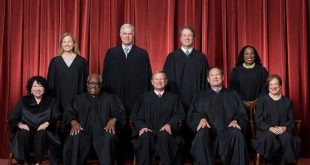Be careful what you wish for…
As I’ve said before, the fact that black men are disproportionately crime victims and perpetrators justifies a heavy police presence, which inevitably leads to interaction.
Consequently, police are concerned, to understate the matter, especially in the present climate. On top of everything else, they have to worry about being charged with murder if they kill an “unarmed” black man. The people most in need of their protection get less of it.
The Manhattan Institute’s Heather Mac Donald, always worth reading, penned an op-ed for the Wall Street Journal about the crime wave. According to Mac Donald, gun violence increased by over 60 percent (from last year) in Baltimore. Homicides are up 180 percent in Milwaukee, 25 percent in St. Louis, and 17 percent in Chicago. Murders in Atlanta have risen 32 percent and almost 13 percent in New York.
An excerpt:
The most plausible explanation of the current surge in lawlessness is the intense agitation against American police departments over the past nine months.
Since last summer, the airwaves have been dominated by suggestions that the police are the biggest threat facing young black males today.
We know the biggest threat to young black men are young black men. But President Barack Obama, Eric Holder, and a complicit leftist media put out a different story. The “Ferguson Effect” is the consequence.
Similar “Ferguson effects” are happening across the country as officers scale back on proactive policing under the onslaught of anti-cop rhetoric. Arrests in Baltimore were down 56% in May compared with 2014.
Leftists have unleashed lawlessness on low-income black communities that rely on the police to stop some of the violence. Mac Donald discusses the “broken window” theory of crime fighting. If a neighborhood has an abandoned building with some broken windows, for example, and the city or the owner doesn’t repair them, vandals will assume neither cares. They’ll break more windows. Police reduce this “air of lawlessness in rough neighborhoods” by trying to stop low-level crimes.
This kind of policing is considered “racist.”
Contrary to the claims of the “black lives matter” movement, no government policy in the past quarter century has done more for urban reclamation than proactive policing. Data-driven enforcement, in conjunction with stricter penalties for criminals and “broken windows” policing, has saved thousands of black lives, brought lawful commerce and jobs to once drug-infested neighborhoods and allowed millions to go about their daily lives without fear.
It’s going to be a long summer.
 CURE News and Clergy Blog News and Commentary for Christians
CURE News and Clergy Blog News and Commentary for Christians




Well the people are getting what they ask for. Now the police are only around to draw the chalk line and take the report “after” the crime has been committed. They will go to the areas that appreciate their services and the crime ridden neighborhoods will fall deeper into lawlessness to avoid being called “racist”, solidifying their position as a permanent underclass while immigrant groups step over them to take their place among the law abiding citizens. It is a serious shame that the people in these areas just can’t see what they’re doing to themselves. I’m saddened by it.
All correct, and all done by the Democrat party in the name of uplifting the community.